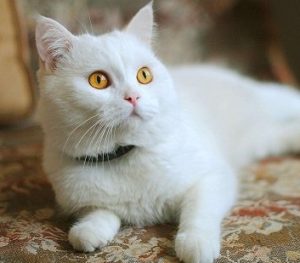If your cat has trouble defecating, it’s not advisable to casually give it human medications like lactulose, as this might not help and could even worsen the situation. Instead, cat owners should take appropriate measures and provide proper daily care.
Adjusting Your Cat’s Daily Diet Sometimes, a cat’s constipation isn’t due to serious issues but improper feeding. For example, dry and salty foods combined with the cat’s reluctance to drink water can negatively impact its digestion. In this case, cat owners can adjust the diet to more easily digestible options like vegetable or meat porridge mixed with canned food. Also, ensure plenty of clean, warm water is available for your cat.
Addressing Digestive Issues Constipation isn’t always food-related; a lack of beneficial gut bacteria can also be a factor. This deficiency can not only cause constipation but also affect the cat’s growth. To address this, you can supplement your cat’s diet with beneficial bacteria by offering honey water, plain yogurt, or specialized pet probiotics like “Miao Ling Chang.”
Daily Grooming and Care Hairballs can also lead to constipation in cats. To mitigate this, provide cat grass or hairball paste. Maintaining a clean living environment and regularly cleaning the litter box are also essential aspects of cat care.
Additional Tips
-
Patience and Care: Cat owners should patiently care for their pets. If the situation is severe, consult a veterinarian promptly.
-
Fruits and Vegetables: Incorporate a variety of fruits and vegetables into your cat’s diet to ensure a balanced intake of nutrients.
-
Avoid Overfeeding: Don’t overfeed your cat, as this can burden its digestive system.
By paying attention to these details and providing thoughtful care, you can help ensure your cat maintains good digestive health and overall well-being.

